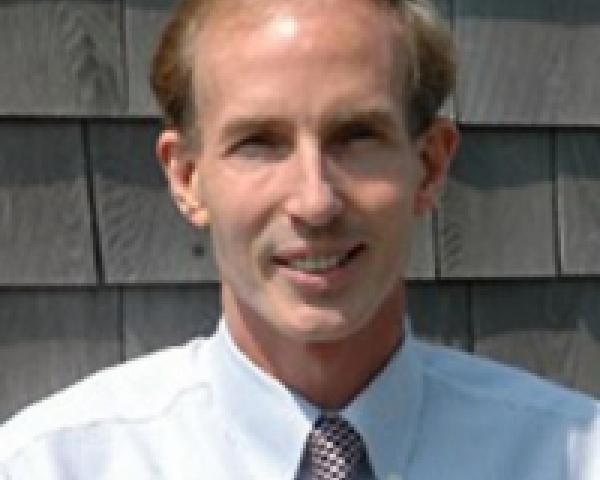Yesterday, the highest-profile person ever to address the topic of wellness -- Arianna Huffington -- posted
this. I don’t think I’ve ever seen anyone get a story more wrong when a few simple mouse-clicks could have cleared up any misconceptions. (Note: Unlike probably everyone else who attacks Ms. Huffington, I have no political agenda, because she is in the same party as I am -- or at least as I was, until this commentary came out).
What She Said
First, she cites a
“study out of Harvard” that found a 3.27-to-1 return on investment (ROI) in wellness. But there are major problems with that study, problems that a simple Internet search would have uncovered. Leaving aside issues of more interest to a biostatistician than a lay person (the study’s failure to be replicated in four years, blatant publication bias, no plausibility analysis), there is still an inconvenient truth: The author herself has walked this study back or refused to defend it not
once, not
twice, but three times -- including in this very
blog.
Second, somehow Huffington cites a
RAND study as supporting wellness even though the author
asked people to stop misinterpreting it as supporting wellness, because it doesn’t -- the author says he found that lifestyle management returned 25 cents on each dollar that employers invested.
Third, even though I myself have co-written
three widely read essays (also heavily commented upon) in Harvard Business Review documenting the financial and health hazards of wellness programs, she overlooked these in favor of one widely ignored diatribe (zero comments other than from me and my co-author) by the CEO of a wellness vendor,
ShapeUp, that attacked my co-author
Vik Khanna and me.
How credible was that attack on us? We immediately
reposted it on The Health Care Blog, feeling it demonstrated ShapeUp’s petulant failure to understand the way wellness economics worked. Then we looked a little harder at ShapeUp’s own published outcomes, which show no savings even
according to ShapeUp itself. ShapeUp’s CEO refused to defend his own outcomes claims, no doubt because they were indefensible.
Finally, she conflated doing wellness to your employees (like
Penn State did and most organizations stlll do) with doing wellness for your employees. She cites examples of caring for employees, an exemplary message with which I wholeheartedly agree. (My book
Cracking Health Costs, written with
Tom Emerick, was the first to distinguish the “to employees” from “for employees” wellness program strategies). Unfortunately, her examples are being taken as defending the indefensible
“pry, poke, prod and punish” programs that the wellness industry embraces because they are so profitable.
What She Could Have Said Instead
Arianna Huffington can reach more people with a single posting that I reach all year. This was a golden opportunity to defend employees (presumably her constituency) from employers “playing doctor” with their workforces, but she wasted this posting defending the wellness industry status quo. This is perhaps the first time that HuffPost (actually this posting was on LinkedIn, but the “brand” is HuffPost) has sided with the Business Roundtable.
As
this editorial – posted on a website whose provenance includes General Electric and Intel (a company justifiably cited favorably in Huffington's article) -- points out, conventional wellness programs are more likely to harm employees than benefit them. She could have used her bully pulpit to urge that employers stop harming their employees through overscreening, overdiagnosis, overtreatment and especially “biggest loser” programs. Almost any weight loss program encourages binging before the initial weigh-in and crash-dieting before subsequent weigh-ins. Both eating behaviors are, of course, exactly the opposite of healthy. By the way, there is zero evidence that corporate weight-loss programs generate weight loss, as ShapeUp’s own data demonstrates, and zero evidence that (except at both extremes) weight affects health spending during people’s working ages.
There is also no impact on productivity. Do your overweight colleagues take longer to answer the phone, type more slowly or jam the copier more often? I didn’t think so.
Let us not forget the shaming, failure and body image issues that unsuccessful weight loss creates (and most weight loss is unsuccessful.) No wonder employees hate these programs so much that there is a
class action at CVS against theirs, that
Penn State employees successfully revolted against theirs and that employers now threaten employees with an
average forfeiture of $594 just to get them to participate, an amount that has almost tripled in five years.
The other staple of wellness programs – making people go to the doctor when they aren’t sick -- has long been shown to provide no benefit,
save no money and
possibly harm patients. The health hazards, lies and clinical fallacies underlying these conventional wellness programs are described in my book
Surviving Workplace Wellness.
What She Can Still Say
Now is the time for Huffington to stand up for the health of employees and urge employers to
benefit employees with wellbeing instead of harming employees with wellness. To her credit, Huffington alludes to wellbeing, through many of the examples in her posting, but she “buried the lead” by endorsing the excesses of wellness programs and not taking the opportunity to urge that wellness programs be required to do no harm.
I ask Ms. Huffington to give wellness a second look, perhaps combining her advocacy of wellbeing with a message that employers need to stop prying, poking, prodding and punishing their employees and instead focus on improving their health.
It’s time for employers to put the “well” back in “wellness.”


